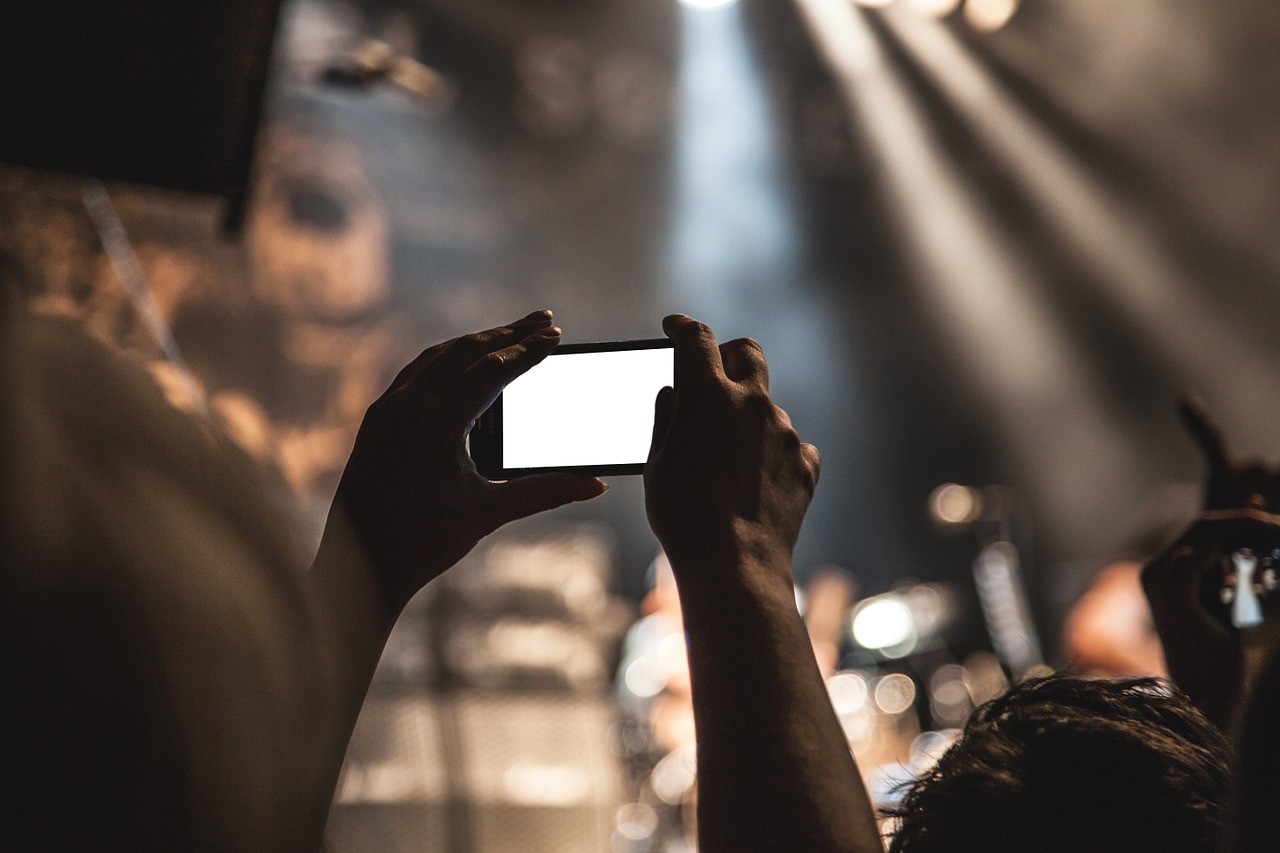It was a wonderful morning. With the warmth of the sun, I was celebrating the moment: its beauty and eternity. But then, as a child of modernity, I have possibly lost the capacity to remain calm and meditative. Instead, I took a newspaper (The Times of India); and then I saw a story: “Bengaluru: Woman chooses Tik Tok over spouse after he objects to her raunchy videos”. I read it, and felt intense pain. Because it was the story of the breakdown of a relationship; and this time the woman’s indulgence with the magic of technology, and her irresistible urge to remain ‘popular’ through her videos led her husband object to her act because, according to him, it was ‘damaging to family values.’ Yes, according to the report, a neighbor introduced her to Tik Tok, and she ‘instantly got hooked to it.’ She started making videos, and ‘enjoyed the online attention she was receiving in terms of followers and likes.’ Possibly, this hunger for ‘lakhs of likes’ led her to perform even obscene dances in the video. No, the counselor, as the report indicates, could do nothing. As it suggests, ‘the woman was determined to continue being on Tik Tok, and didn’t want to forgo lakhs of fans who had lauded her performance over the years.’ This ‘social media related marital discord’ eventually led to the divorce. Yes, it was the sad end of a relationship.
No, I am not here to judge. I am not here to comment whether her husband behaved like a patriarch, and interfered in his wife’s life. Nor can I say whether she is right in her decision. However, what strikes me is the emergent phenomenon: the way the addiction to the ever-expanding social media, and the craze for ‘likes’, ‘shares’ and ‘subscribers’ are causing severe psychic restlessness, ontological insecurity, and affecting the rhythm of human relationships: our orientation to life, culture and people around.

The restless mind: ‘likes’, ‘viewers’ and ‘subscribers’
To begin with, let me make it clear. I am not against technology; and I do realize that the phenomenal growth in social media, and simultaneous information revolution have enabled many to unfold their creative/artistic/ intellectual skills, disseminate their works instantly, and get quick recognition. Who can deny that technology has an enabling role? Yes, at times, it has indeed rescued the creative realm from the monopoly of the select few. Today even if you do not belong to a corporate media house, it is possible for you to come forward with a brilliant news report, or a well-researched documentary. And thanks to You Tube; it has offered us many good comedians, singers, journalists, speakers and artists.
However, without the cultivation of a creatively nuanced critical faculty, one’s indulgence with technology, it has to be realized, might lead to disastrous consequences. Imagine the growing addiction to the hyper-real/magical world that smart phones with their instantaneity bring in front of us. The dialectic of this media explosion is that it has also caused a high degree of information pollution: the celebration of the trivia, or the ceaseless flow of all sorts of ‘viral’ posts. With Twitter, Facebook, Instagram, Tik Tok and You Tube, we see the ongoing march of messages, visuals and performances; and it often causes restlessness for both the producer and the consumer. It generates a new form of neurosis: the desperate urge to be ‘informed’ (it is a feeling that if you miss something ‘viral’, you have missed life itself; it is a constant excitement with the temporal), and the desire to be ‘visible’ and ‘liked’.
Furthermore, in the age of instantaneity, serious/contemplative thinking is often sacrificed; and the ‘democratization’ of technology, a careful observer would agree, tempts one to post anything, be it the visual of what one has just bought from a shopping mall, or a filthy remark against one’s political opponents. It also affects our choices. The danger is that as average consumers, we begin to demand what doesn’t require much thinking and reflection. It is a shift—say, from serious books to online articles for quick consumption (3 minute read), or from articles to bullet-points; from critical reflection to dramaturgical performance (these days glamorous film stars or celebrities become political commentators; or a serious critique is reduced into mere ‘humor’); from analytical news to sensational videos; and from deep culture to gross/glossy stimulations.
Well, as I have already indicated, it is not my contention to say that there is nothing positive in this explosion. However, what cannot be denied is that this techno- abundance has also trivialized the cultural landscape. What is really frightening is that it has begun to affect one’s self-definition. Is it that in our times a new question has begun to confront us? If my Facebook post is not liked by many, who am I? Or, if my You Tube channel does not get lakhs of subscribers and viewers, do I have the right to exist? Am I then stupid, insignificant and irrelevant? As everything is measured and quantified, with our vulnerable selves, we tend to equate our essence with ‘numbers’—say, 345K subscribers, or 6M viewers. Imagine a situation. Your ‘post’ has not been viewed or liked by many. You begin to feel inferior and depressed. A sense of nothingness haunts you. You begin to doubt yourself. Likewise, this desire for ‘popularity’ and instant ‘fame’ compels you to follow the logic: produce something sensational, something that excites, stimulates or arouses wild passions.
Possibly, the woman about whom I read in the newspaper is a product of this toxic culture that emanates from the age of neurotic restlessness. In fact, this craze for being ‘known’ in the stimulant ‘virtual’ realm is essentially related to our alienated existence in the physically embedded ‘real’ living domain. The meaninglessness in the work sphere, the anonymity in complex societies, the devoid of any higher value in education, the inability to understand the treasure of the inner world, and the steady decline in face-to- face/non-utilitarian relationships often cause psychic and existential loneliness—a sense of nausea and boredom. Possibly, the ‘excitement’ of the ‘virtual’ reality is an escape from this chronic meaninglessness. It excites; it stimulates; and it occupies one’s being. Furthermore, the ‘likes’ you get for your ‘post’ give you an illusory notion of ‘success’ and ‘importance’; you begin to feel that finally you have found something that compels others to ‘recognize’ you. It is like being seen as ‘important’ in a world that otherwise diminishes you every day.
However, at a deeper level, the existence demands something truly enduring and life-affirming: something that embraces your body and soul, and makes you feel the ecstasy of love, communion and creative fulfillment. Hence, in the absence of this art of existence, the obsessive use of technology and longing for illusory popularity take us to a neurotic race. One ‘viral’ post remains sensational only for a couple of hours; no wonder, it leads to the quest for another ‘viral’ material; one You Tube sensation causes the desire for something more sensational; and life begins to look dull, empty and insignificant without the magic of ‘likes’, ‘viewers’ and ‘subscribers’. The more you get it the more you fear its temporality. It excites; yet, it makes you discontented. Is it a new drug that has affected all of us—old and young, boys and girls?
Epilogue
Yes, the woman’s story caused with which I began this piece caused intense pain. After passing through an inner churning, I begin to ask myself: Is there any other mode of living: simple, yet immensely fulfilling without comparison, measurement and competition, without the desire for ‘fame’, or without the fear of lagging behind? Is it possible just to sit idle, feel the warmth of the sun, see a bird flying, or a child playing, and realize the depths of eternity in this very moment here and now? Is it possible to be eternally musical without the mathematics of ‘likes’ and ‘subscribers’?
See the wonder—the ultimate miracle. I see a stray dog; an old dog with compassionate eyes looking at me. I get the message—without Facebook and Twitter. I bring a glass of milk and some bread. I offer… And the dog accepts my offering. At that very moment I see a relationship evolving, a song being composed. I find the meaning of living: the art of relatedness, or the joy of a non-utilitarian gesture. For me, it is therapeutic…
Avijit Pathak is a Professor of Sociology at JNU, New Delhi.











